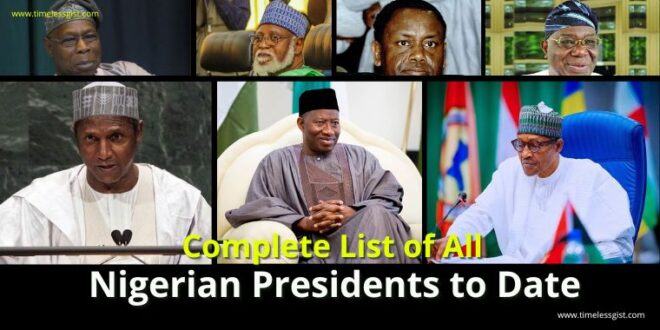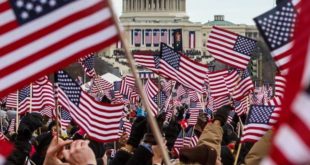– Last updated: 29.05.23
The formation of Nigeria, a nation located in West Africa, is a complex and multifaceted story that involves centuries of colonialism and indigenous resistance. The region that now comprises modern-day Nigeria was initially inhabited by various ethnic groups, including the Yoruba, Hausa-Fulani, and Igbo peoples, who developed their own distinct cultures and societies.
In the late 19th century, the British Empire began to assert its control over the area, establishing a protectorate that would later be merged with the territories of Lagos and Calabar to form the colony and protectorate of Nigeria in 1914. Under British rule, Nigeria’s people faced numerous challenges, including exploitation, cultural assimilation, and political marginalization.
However, the Nigerian people continued to resist and agitate for independence, culminating in a series of social and political movements that eventually led to Nigeria’s independence from Britain on October 1, 1960. This momentous occasion marked the end of colonialism in Africa and the beginning of a new era for Nigeria’s people.
The first prime minister of Nigeria, Abubakar Tafawa Balewa, was installed on the same day as Nigeria’s independence. Balewa, a prominent statesman and nationalist, had been a key figure in Nigeria’s struggle for independence, using his considerable influence to advocate for the rights of his people both at home and abroad. As prime minister, he sought to establish a stable and prosperous nation, implementing policies and programs that would support economic growth and social development.
Below is a list of all Nigerian presidents since its independence till date.
All Nigerian Presidents to Date
| Names of Presidents | Period | |
| 1 | Abubakar Tafawa Balewa | 1960-1963 |
| 2 | Nnamdi Azikwe | 1963-1966 |
| 3 | Johnson Aguiyi Ironsi | 1966 |
| 4 | Yakubu Gowon | 1966-1975 |
| 5 | Murtala Rufai Mohammed | 1975-1976 |
| 6 | Olusegun Aremu Obasanjo | 1976-1979 |
| 7 | Alhaji Shehu Shagari | 1979-1983 |
| 8 | Muhammadu Buhari | 1983-1985 |
| 9 | Ibrahim Babangida | 1985-1993 |
| 10 | Ernest Adegunle Shonekan | 1993 |
| 11 | Sani Abacha | 1993-1998 |
| 12 | Abdulsalami Abubakar | 1998-1999 |
| 13 | Olusegun Aremu Obasanjo | 1999-2007 |
| 14 | Umaru Musa Yar’Adua | 2007-2010 |
| 15 | Goodluck Ebele Jonathan | 2010-2015 |
| 16 | Muhammadu Buhari | 2015-2023 |
| 17 | Bola Ahmed Tinubu | From May 29th 2023 |
Also read: Nigeria States And Capital – 36 States
1. Prime Minister Abubakar Tafawa Balewa (1960-1963)
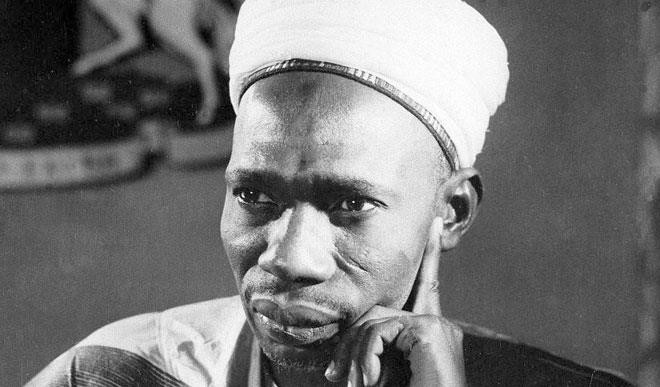
Abubakar Tafawa Balewa was the first Prime Minister of Nigeria and served from 1960 to 1963. He was a prominent Nigerian statesman who played a crucial role in Nigeria’s struggle for independence and was widely respected both in Nigeria and abroad for his leadership, statesmanship, and vision for a united, prosperous, and democratic Nigeria.
Early Life and Career
Abubakar Tafawa Balewa was born on December 1, 1912, in Tafawa Balewa, a small town in modern-day Bauchi State, Nigeria. He was the son of a district head and attended a local Quranic school before enrolling at the Katsina Teacher Training College in northern Nigeria. After completing his studies, he worked briefly as a teacher before entering politics.
In 1946, Balewa joined the Northern People’s Congress (NPC), a political party that advocated for the interests of northern Nigeria. He quickly rose through the ranks of the party and became its leader in 1952. During this time, he worked closely with other prominent Nigerian nationalists, including Nnamdi Azikiwe and Obafemi Awolowo, to push for Nigeria’s independence from British colonial rule.
Political Career and Achievements
Balewa’s political career was marked by his commitment to national unity and democracy. He played a key role in negotiating Nigeria’s independence from Britain and became the country’s first Prime Minister in 1960. As Prime Minister, Balewa worked to unite Nigeria’s diverse regions and ethnic groups and promote economic development and social justice.
One of his most significant achievements was the establishment of a federal system of government that granted significant autonomy to Nigeria’s regions while maintaining a strong central government. He also worked to promote education, healthcare, and infrastructure development and initiated several programs to eradicate poverty and promote economic growth.
During his time in office, Balewa was also a leading voice in the international community, advocating for African independence and solidarity. He served as the President of the United Nations General Assembly in 1963 and was widely respected for his leadership and statesmanship.
Assassination and Legacy
Sadly, Balewa’s time as Prime Minister was cut short when he was overthrown in a military coup in January 1966. He was subsequently assassinated by the military government that took power, along with several other prominent Nigerian politicians.
Despite his untimely death, Balewa’s legacy as a visionary leader and champion of democracy and national unity has endured. He is remembered as one of Nigeria’s founding fathers and is widely respected both in Nigeria and abroad for his contributions to the country’s independence and development.
Several institutions, including universities and airports, have been named in his honor, and his image appears on the Nigerian five naira note. His life and legacy continue to inspire generations of Nigerians to work towards a united, prosperous, and democratic Nigeria.
Abubakar Tafawa Balewa was a remarkable leader who played a crucial role in Nigeria’s struggle for independence and served as the country’s first Prime Minister. His commitment to national unity, democracy, and social justice has inspired generations of Nigerians and cemented his place as one of the country’s most respected and revered leaders. Despite his tragic and untimely death, his legacy endures, and his vision for a united and prosperous Nigeria continues to inspire and guide the country’s leaders and citizens alike.
Also read: Top 11 Richest Musicians in Nigeria
2. President Nnamdi Azikiwe (1963-1966)
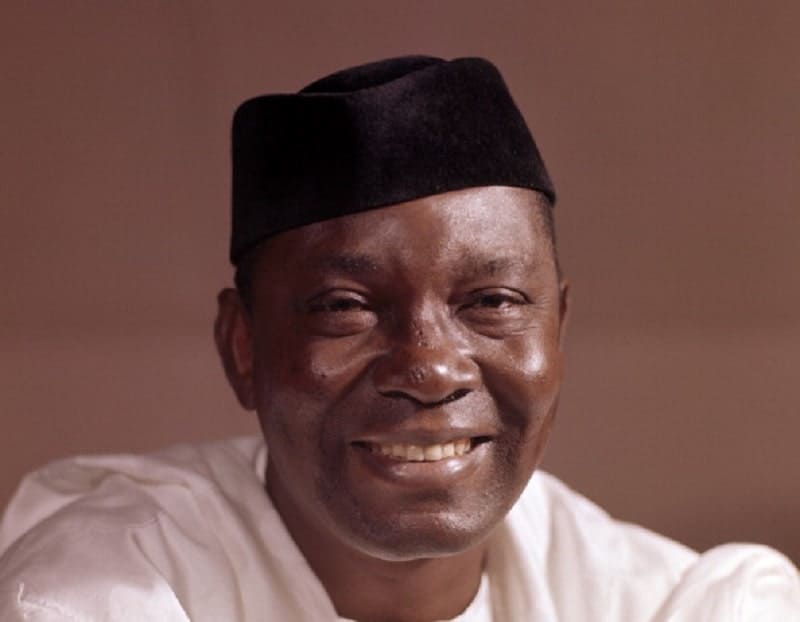
Nnamdi Azikiwe was the first President of Nigeria and served from 1963 to 1966. He was a prominent Nigerian statesman and nationalist who played a key role in Nigeria’s struggle for independence and the country’s subsequent development as a democratic nation.
Early Life and Career
Nnamdi Azikiwe was born on November 16, 1904, in Zungeru, a town in present-day Niger State, Nigeria. He was the son of a clerk and attended various schools in Nigeria and the United States before studying at Lincoln University in Pennsylvania, where he earned a bachelor’s degree in political science.
After returning to Nigeria, Azikiwe worked as a journalist and founded several newspapers, including the West African Pilot and the Nigerian Spokesman. He used his newspapers as a platform to advocate for Nigerian independence and social justice and became a leading voice in the country’s nationalist movement.
Political Career and Achievements
Azikiwe’s political career was marked by his commitment to democracy, national unity, and economic development. He played a crucial role in Nigeria’s struggle for independence and was a key figure in the negotiations that led to the country’s independence from British colonial rule in 1960.
After independence, Azikiwe became the Governor-General of Nigeria and later the country’s first President in 1963. As President, he worked to promote economic development, education, and social justice and initiated several programs to reduce poverty and improve the standard of living for Nigerians.
One of his most significant achievements was the establishment of a federal system of government that granted significant autonomy to Nigeria’s regions while maintaining a strong central government. This system helped to promote national unity and reduce tensions between Nigeria’s diverse ethnic and religious groups.
During his time in office, Azikiwe also played a leading role in African politics and was a prominent voice in the Pan-African movement. He was a strong advocate for African unity and solidarity and worked to promote economic and political cooperation between African countries.
Assassination and Legacy
Unfortunately, Azikiwe’s time as President was cut short when he was overthrown in a military coup in 1966. He subsequently went into exile and remained outside Nigeria for several years.
Despite his forced departure from office, Azikiwe’s legacy as a visionary leader and champion of democracy, national unity, and social justice has endured. He is remembered as one of Nigeria’s founding fathers and is widely respected both in Nigeria and abroad for his contributions to the country’s independence and development.
Several institutions, including universities and airports, have been named in his honor, and his image appears on the Nigerian five hundred naira note. His life and legacy continue to inspire generations of Nigerians to work towards a united, prosperous, and democratic Nigeria.
Nnamdi Azikiwe was a remarkable leader who played a crucial role in Nigeria’s struggle for independence and the country’s subsequent development as a democratic nation. His commitment to democracy, national unity, and social justice has inspired generations of Nigerians and cemented his place as one of the country’s most respected and revered leaders. Despite his forced departure from office, his legacy endures, and his vision for a united and prosperous Nigeria continues to inspire and guide the country’s leaders and citizens alike.
Also read: The hypocrisy of the South Will Help Atiku Succeed Buhari
3. Major-General Johnson Aguiyi-Ironsi (1966)
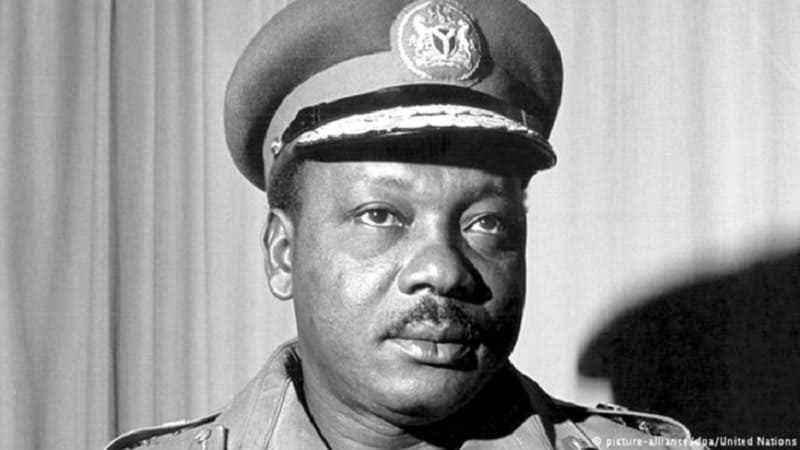
Major-General Johnson Aguiyi-Ironsi was a Nigerian military officer who served as the second Head of State of Nigeria from January to July 1966. He was a controversial figure whose brief tenure in office was marked by political upheaval and ethnic tensions.
Early Life and Career
Aguiyi-Ironsi was born on March 3, 1924, in Umuahia, present-day Abia State, Nigeria. He joined the Nigerian Army in 1942 and rose through the ranks to become a Major-General in 1965.
Aguiyi-Ironsi played a significant role in Nigeria’s political and military history, serving as the Commander of the Nigerian Army’s Second Brigade during the Nigerian Civil War and later as the Chief of Army Staff.
Rise to Power
Aguiyi-Ironsi came to power in January 1966, following a military coup that overthrew the civilian government of Prime Minister Sir Abubakar Tafawa Balewa. The coup was led by a group of young military officers who were dissatisfied with the government’s handling of the country’s political and economic challenges.
As the most senior military officer at the time, Aguiyi-Ironsi was chosen to lead the new military government, which he called the Supreme Military Council. He suspended the constitution and dissolved the federal and regional governments, consolidating power in the hands of the military.
Challenges in Office
Aguiyi-Ironsi’s brief tenure in office was marked by significant challenges, including widespread ethnic tensions and the growing power of separatist movements in Nigeria’s regions.
Many Nigerians, particularly those in the Northern and Western regions, viewed Aguiyi-Ironsi’s rise to power with suspicion and resentment, seeing him as a representative of the Eastern region, where he hailed from.
Aguiyi-Ironsi attempted to address these tensions by announcing a new military government that would be based on a “nationalist” and “non-regional” basis. However, his efforts were not successful, and the country continued to spiral into chaos.
Coup and Assassination
Aguiyi-Ironsi’s time in power (194 days in office) came to an abrupt end in July 1966 when he was overthrown in a counter-coup led by a group of Northern military officers. The coup was largely motivated by the growing sense of dissatisfaction and unrest in the Northern region, where many felt that the government had been dominated by the Eastern region for too long.
Aguiyi-Ironsi was arrested and later assassinated by Northern military officers, along with several other senior military and civilian officials from the Eastern region.
Legacy
Aguiyi-Ironsi’s legacy is a complex and controversial one. Some see him as a brave military leader who attempted to bring stability to Nigeria during a time of great political and economic turmoil. Others view him as a divisive figure who contributed to the country’s deepening ethnic and regional tensions.
Despite these differing perspectives, there is little doubt that Aguiyi-Ironsi played a significant role in Nigeria’s history and helped shape the country’s political and military landscape for decades to come. His legacy serves as a reminder of the challenges of governing a diverse and complex nation like Nigeria and the importance of strong leadership and a commitment to democracy, national unity, and social justice.
Also read: 12 Cheapest Universities in UK 2022/2023
4. General Yakubu Gowon (1966-1975)
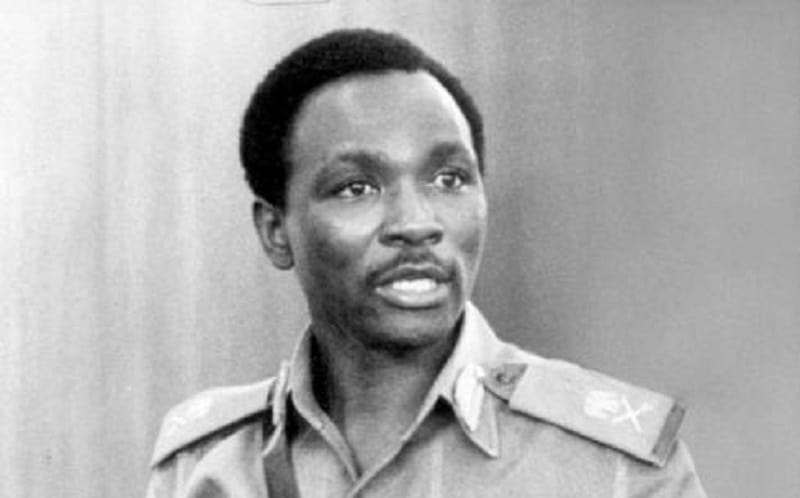
General Yakubu Gowon was a Nigerian military officer who served as the Head of State of Nigeria from 1966 to 1975. He was one of the longest-serving military rulers in Nigeria’s history, and his tenure in office was marked by significant political, economic, and social changes.
Early Life and Career
Gowon was born on October 19, 1934, in Pankshin, present-day Plateau State, Nigeria. He joined the Nigerian Army in 1954 and rose through the ranks to become a Lieutenant Colonel in 1964.
Gowon played a significant role in Nigeria’s political and military history, serving as the Commander of the Nigerian Army’s Second Infantry Division during the Nigerian Civil War and later as the Chief of Army Staff.
Rise to Power
Gowon came to power in July 1966 following a counter-coup that overthrew the government of Major-General Johnson Aguiyi-Ironsi. As the most senior military officer at the time, Gowon was chosen to lead the new military government, which he called the Federal Military Government.
Gowon inherited a country that was deeply divided along ethnic and regional lines, with tensions running high between the Northern and Eastern regions. His main priority was to restore peace and stability to the country and to reunite its people.
Challenges in Office
Gowon faced significant challenges during his tenure in office, including the Nigerian Civil War, which lasted from 1967 to 1970. The war was fought between the Nigerian government and secessionist forces in the Eastern region, led by Colonel Chukwuemeka Odumegwu Ojukwu.
Gowon’s government launched a military campaign to crush the secessionist forces, which led to significant bloodshed and loss of life. The war ended in January 1970 when the secessionist forces surrendered, and Nigeria was reunited under a federal system of government.
Gowon’s government also faced significant economic challenges during his time in office. He inherited an economy that was heavily reliant on oil exports, and he worked to diversify the country’s economy and reduce its dependence on oil.
Legacy
Gowon’s legacy is a mixed one. On the one hand, he is remembered for his efforts to reunite Nigeria and to restore peace and stability to the country. He is also credited with overseeing significant economic and social changes during his tenure in office, including the establishment of new universities and the construction of new infrastructure.
However, his government was also criticized for its human rights abuses, including the detention and torture of political opponents and the suppression of free speech and the press. His government was also accused of corruption, and there were allegations of widespread embezzlement and mismanagement of public funds.
In 1975, Gowon was overthrown in a bloodless coup while attending a summit of the Organization of African Unity in Uganda. He went into exile in the United Kingdom, where he lived for several years before returning to Nigeria in 1983.
General Yakubu Gowon was a significant figure in Nigeria’s political and military history. His tenure in office was marked by significant political, economic, and social changes, including the Nigerian Civil War and the diversification of the country’s economy. While his legacy is a mixed one, his story serves as a reminder of the challenges of governing a diverse and complex nation like Nigeria and the importance of strong leadership and a commitment to democracy, national unity, and social justice.
Also read: Top 10 Recruiting NGO Jobs in Nigeria you Should Explore
5. General Murtala Rufai Ramat Mohammed (1975 to 1976)
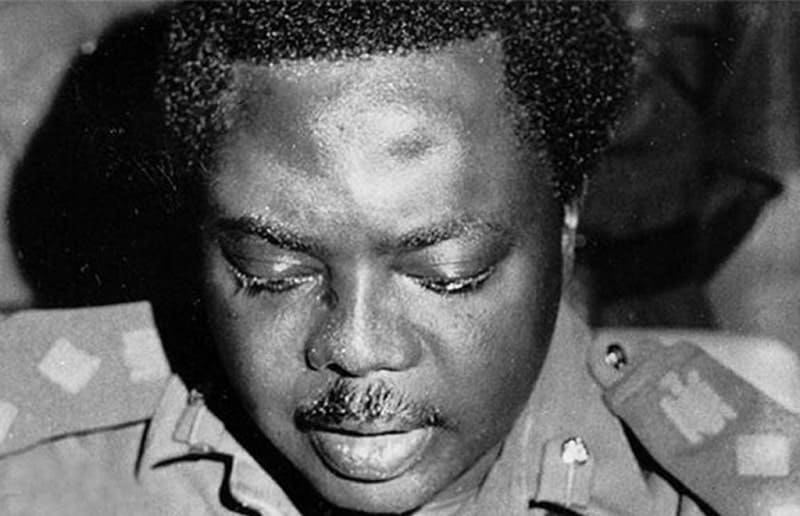
General Murtala Rufai Ramat Mohammed was a Nigerian military officer who served as the Head of State of Nigeria from July 1975 to February 1976. He was one of Nigeria’s most prominent military rulers and is remembered for his bold initiatives to reform the country’s political and economic landscape.
Early Life and Military Career
Murtala Mohammed was born on November 8, 1938, in Kano, Nigeria. He attended primary and secondary schools in Kano and Kaduna and later joined the Nigerian Army in 1958. He received his military training in the United Kingdom and was commissioned as a Second Lieutenant in 1961.
Mohammed served in various military capacities, including as a platoon commander, company commander, and battalion commander. He also served in the Congo Crisis in the early 1960s and in the Nigerian Civil War in the late 1960s.
Rise to Power
On July 29, 1975, Murtala Mohammed led a bloodless coup that overthrew General Yakubu Gowon, who had been in power for nine years. Mohammed became the new Head of State and formed a government that was committed to reforming Nigeria’s political and economic systems.
Challenges in Office
Mohammed’s government faced significant challenges during its brief time in office. The country was still reeling from the effects of the Nigerian Civil War, and there were deep divisions between the various ethnic groups in the country.
Mohammed’s government implemented several bold initiatives to address these challenges, including the creation of 19 new states, which were designed to reflect the country’s ethnic and regional diversity. The government also launched a campaign to root out corruption and abuse of power, and several high-ranking officials were dismissed or prosecuted for corruption.
Legacy
Mohammed’s tenure in office was short, but his impact on Nigerian politics and society was significant. He is remembered for his commitment to reforming Nigeria’s political and economic systems, his efforts to promote national unity and social justice, and his bold initiatives to address corruption and abuse of power.
Mohammed also played a key role in Nigeria’s foreign policy, championing the cause of African unity and cooperation. He was instrumental in the formation of the Economic Community of West African States (ECOWAS) and worked to promote peace and stability in the region.
Tragically, Mohammed’s time in office was cut short when he was assassinated in a failed coup attempt on February 13, 1976. His death was a major blow to Nigeria, and many Nigerians still mourn his passing today.
In conclusion, General Murtala Rufai Ramat Mohammed was a significant figure in Nigerian history, and his legacy continues to inspire Nigerians today. His commitment to national unity, social justice, and economic reform laid the groundwork for the Nigeria of today, and his bold initiatives to address corruption and abuse of power set an example for future leaders to follow. Although his time in office was brief, his impact on Nigerian politics and society was significant, and his memory remains a source of inspiration and pride for Nigerians everywhere.
Also read: 8 Most Visited Cities in The United State of America – USA
6. Major General Olusegun Obasanjo (1976-1979)
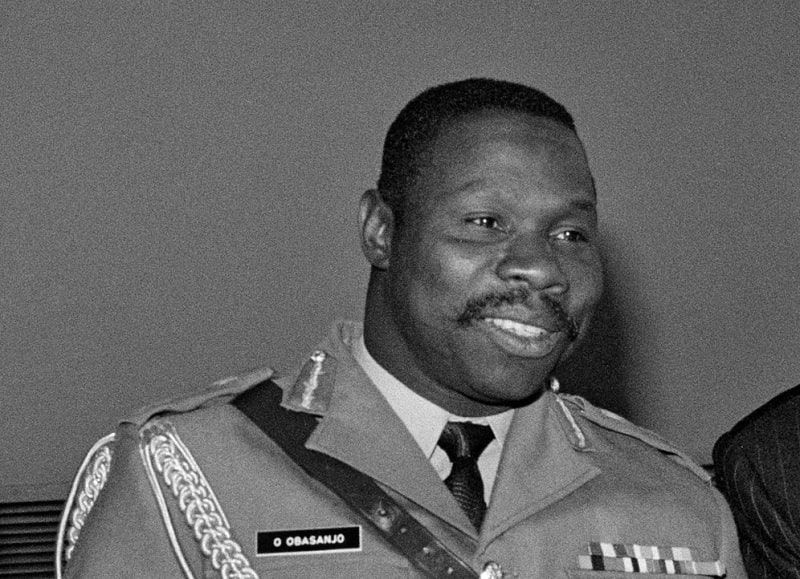
Major General Olusegun Obasanjo was the military Head of State of Nigeria from 1976 to 1979, succeeding General Murtala Mohammed, who was assassinated in a failed coup attempt. Obasanjo’s tenure in office was marked by significant achievements in the areas of infrastructure development, education, and foreign policy.
Early Life and Military Career
Olusegun Obasanjo was born on March 5, 1937, in Abeokuta, Nigeria. He joined the Nigerian Army in 1958 and received his military training in Nigeria and the United Kingdom. Obasanjo served in various military capacities, including as a platoon commander, company commander, and battalion commander. He also served as the Director of Army Signal Corps and as a United Nations peacekeeper in the Congo and in Lebanon.
Rise to Power
Following the assassination of General Murtala Mohammed in February 1976, Olusegun Obasanjo became the Head of State of Nigeria. He was initially seen as a compromise candidate who could bridge the divisions within the military and restore stability to the country.
Achievements in Office
Obasanjo’s tenure in office was marked by significant achievements in the areas of infrastructure development, education, and foreign policy. His government launched several ambitious projects, including the construction of new roads, bridges, and airports, and the establishment of new universities and technical colleges.
Obasanjo also pursued an active foreign policy, seeking to promote Nigeria’s influence on the global stage. He played a leading role in the formation of the Economic Community of West African States (ECOWAS) and worked to promote peace and stability in the region.
Obasanjo’s government also took steps to address corruption and abuse of power. Several high-ranking officials were prosecuted for corruption, and the government introduced new measures to improve transparency and accountability in government.
Transition to Civilian Rule
Obasanjo’s government also oversaw the transition to civilian rule in Nigeria, culminating in the 1979 presidential election. Obasanjo stepped down as Head of State and handed over power to the newly elected civilian president, Shehu Shagari.
Legacy
Obasanjo’s tenure in office was a significant period in Nigerian history, marked by significant achievements in infrastructure development, education, and foreign policy. His government’s efforts to address corruption and abuse of power set an important precedent for future leaders, and his commitment to the rule of law and democracy laid the foundation for Nigeria’s transition to civilian rule.
After stepping down from office, Obasanjo remained an influential figure in Nigerian politics, serving as a key advisor to several presidents and playing an active role in regional and international affairs. He was also a strong advocate for democracy, peace, and development in Africa, and his legacy continues to inspire Nigerians and Africans today.
Major General Olusegun Obasanjo was a significant figure in Nigerian history, and his tenure as Head of State from 1976 to 1979 was marked by significant achievements in infrastructure development, education, and foreign policy. His government’s efforts to address corruption and abuse of power set an important precedent for future leaders, and his commitment to democracy and the rule of law laid the foundation for Nigeria’s transition to civilian rule. His legacy continues to inspire Nigerians and Africans today, and his contributions to Nigerian and African politics and society will be remembered for generations to come.
Also read: 200+ Cultural Female Yoruba Names and their Meanings
7. Alhaji Shehu Shagari ( 1979-1983)
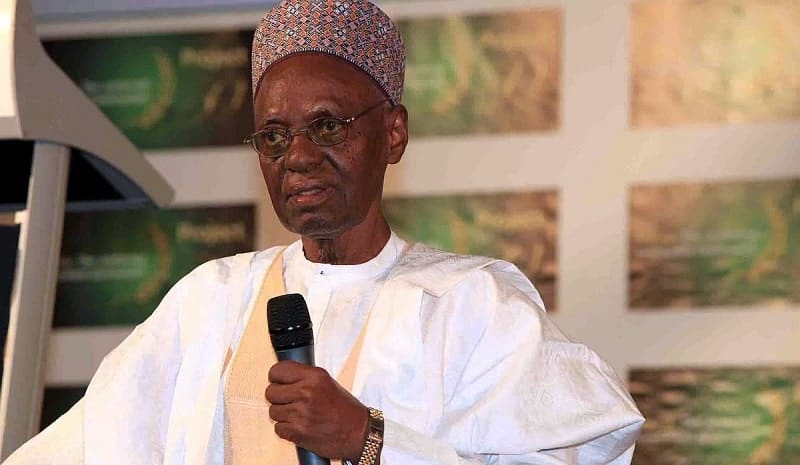
Alhaji Shehu Shagari was the first democratically elected President of Nigeria, serving from 1979 to 1983. He is widely regarded as one of Nigeria’s most prominent political figures and played a key role in shaping the country’s political landscape.
Early Life and Career
Shehu Shagari was born on February 25, 1925, in Shagari village, Sokoto State, Nigeria. He received his education in Nigeria and later went on to study in the United Kingdom. He began his political career as a member of the Northern People’s Congress (NPC) and served as a member of the Federal House of Representatives in Nigeria’s first post-independence government.
Rise to Power
Following the military coup that toppled the government of General Yakubu Gowon in 1975, Shehu Shagari emerged as one of the key figures in the new civilian government. In 1979, he contested and won the presidential election under the banner of the National Party of Nigeria (NPN).
Achievements in Office
During his tenure in office, President Shehu Shagari implemented a number of policies and initiatives aimed at promoting economic growth and development. He oversaw the establishment of the Green Revolution Program, which sought to increase agricultural production and reduce Nigeria’s dependence on food imports. His government also launched several infrastructure projects, including the construction of new roads, bridges, and hospitals.
President Shagari also pursued an active foreign policy, seeking to promote Nigeria’s influence on the global stage. He played a leading role in the formation of the Economic Community of West African States (ECOWAS) and worked to promote peace and stability in the region.
Challenges and Overthrow
Despite his achievements, President Shagari’s tenure in office was also marked by significant challenges. His government was beset by corruption scandals and allegations of electoral fraud. The economy also struggled, with high inflation and a lack of foreign investment.
In December 1983, President Shagari was overthrown in a military coup led by General Muhammadu Buhari. He was subsequently placed under house arrest for several years before being released in 1986.
Legacy
Despite his removal from office, Shehu Shagari is widely regarded as one of Nigeria’s most important political figures. His commitment to democracy and the rule of law paved the way for Nigeria’s eventual transition to civilian rule in 1999. His government’s efforts to promote economic growth and development laid the foundation for Nigeria’s emergence as a major economic power in Africa.
Shehu Shagari was a significant figure in Nigerian politics and history, serving as the first democratically elected President of Nigeria from 1979 to 1983. His government implemented a number of policies and initiatives aimed at promoting economic growth and development, but was also beset by challenges such as corruption scandals and allegations of electoral fraud. Despite his removal from office, his legacy as a champion of democracy and the rule of law continues to inspire Nigerians and Africans today.
Also read: 700+ Yoruba Names and Their Meanings
8. Major General Muhammadu Buhari (1983 to 1985)
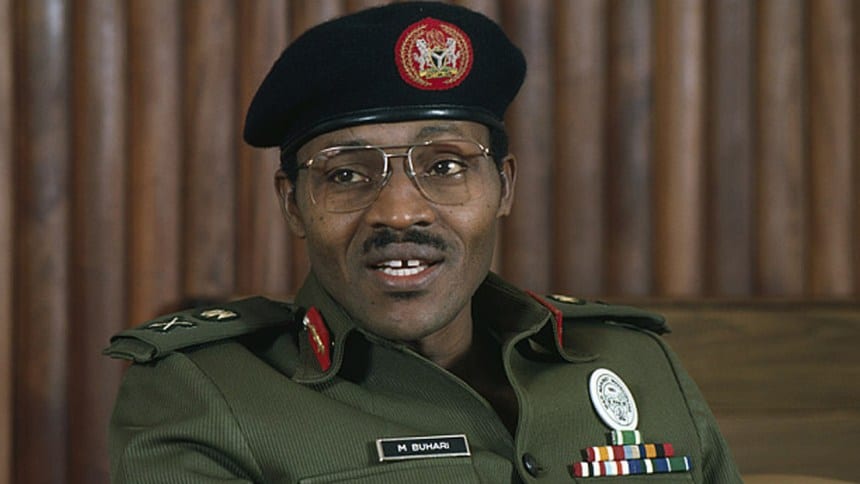
Major General Muhammadu Buhari was the military ruler of Nigeria from 1983 to 1985, following a coup that overthrew President Shehu Shagari’s civilian government. Buhari’s brief tenure in office was marked by strict military rule, a crackdown on corruption, and attempts to revive Nigeria’s struggling economy.
Early Life and Military Career
Muhammadu Buhari was born on December 17, 1942, in Daura, Katsina State, Nigeria. He received his early education in Nigeria before joining the Nigerian Army in 1962. Buhari rose through the ranks of the army, eventually becoming a Major General in 1980.
Rise to Power
In December 1983, Buhari led a military coup that overthrew the civilian government of President Shehu Shagari. Buhari was appointed Head of State and Commander-in-Chief of the Armed Forces, with a mandate to restore order and stability to the country.
Policies and Achievements
Buhari’s tenure in office was characterized by strict military rule and a crackdown on corruption. He launched a campaign against indiscipline and corruption, which included the arrest and imprisonment of prominent politicians and businessmen. His government also implemented several policies aimed at reviving Nigeria’s struggling economy, including currency devaluation and austerity measures.
Buhari’s government also pursued an active foreign policy, seeking to promote Nigeria’s influence on the global stage. He worked to strengthen ties with African countries and played a leading role in the formation of the Economic Community of West African States (ECOWAS).
Challenges and Overthrow
Despite his efforts to restore order and stability, Buhari’s government was not without its challenges. His strict policies and crackdown on corruption were criticized by some as being too heavy-handed, while others accused him of human rights abuses.
In August 1985, Buhari was overthrown in a military coup led by General Ibrahim Babangida. He was subsequently detained for several years before being released in 1988.
Legacy
Despite his brief tenure in office, Muhammadu Buhari remains an influential figure in Nigerian politics and history. His campaign against corruption and indiscipline laid the foundation for future efforts to combat corruption in Nigeria, while his attempts to revive the economy set the stage for Nigeria’s eventual emergence as a major economic power in Africa.
Buhari’s legacy also includes his contributions to Nigeria’s foreign policy, particularly his efforts to promote African unity and regional integration. His role in the formation of ECOWAS helped to promote cooperation and development in West Africa, while his efforts to strengthen ties with other African countries laid the foundation for Nigeria’s role as a leader on the continent.
Major General Muhammadu Buhari’s brief tenure as military ruler of Nigeria from 1983 to 1985 was marked by strict military rule, a crackdown on corruption, and attempts to revive Nigeria’s struggling economy. Despite his overthrow, his legacy as a champion of anti-corruption and economic development continues to inspire Nigerians and Africans today.
Also read: Olojo Festival – History of ILE IFE and Celebration of Olojo – Research
9. General Ibrahim Babangida (1985-1993)
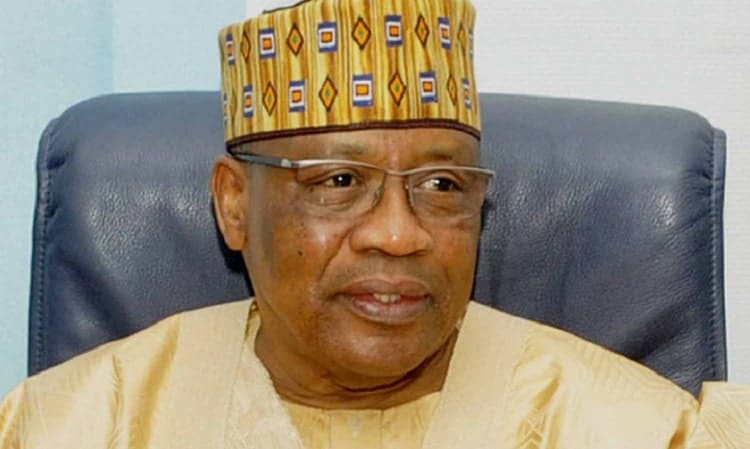
General Ibrahim Babangida served as the military ruler of Nigeria from 1985 to 1993. His tenure in office was marked by significant changes in Nigeria’s political and economic landscape, including the introduction of economic reforms, the creation of new states, and the transition to a democratic government.
Early Life and Military Career
Ibrahim Babangida was born on August 17, 1941, in Minna, Niger State, Nigeria. He received his early education in Nigeria before joining the Nigerian Army in 1962. Babangida rose through the ranks of the army, eventually becoming a Major General in 1983.
Rise to Power
In August 1985, Babangida led a military coup that overthrew General Muhammadu Buhari’s government. He was subsequently appointed Head of State and Commander-in-Chief of the Armed Forces, with a mandate to restore order and stability to the country.
Policies and Achievements
Babangida’s tenure in office was characterized by significant changes in Nigeria’s political and economic landscape. He introduced several economic reforms aimed at liberalizing the economy and attracting foreign investment. These reforms included the privatization of state-owned enterprises, the deregulation of the economy, and the devaluation of the Naira.
Babangida also oversaw the creation of nine new states, bringing the total number of states in Nigeria to 30. He introduced a new constitution in 1989, which paved the way for the transition to a democratic government. Under his leadership, Nigeria played a prominent role in African affairs, particularly in efforts to end apartheid in South Africa.
Challenges and Transition to Democracy
Despite his efforts to modernize Nigeria’s economy and political system, Babangida’s government was not without its challenges. His economic reforms were criticized by some as being too hasty, while others accused him of human rights abuses.
In 1993, Babangida announced plans to hold a presidential election, which was seen as a major step towards the transition to a democratic government. However, the election was marred by controversy and allegations of fraud, leading to its annulment by Babangida.
Legacy
Despite the controversy surrounding the annulled election, Babangida’s tenure in office remains significant in Nigeria’s history. His economic reforms helped to liberalize the economy and attract foreign investment, while his efforts to modernize Nigeria’s political system set the stage for the country’s eventual transition to a democratic government.
Babangida’s legacy also includes his contributions to African affairs. He played a leading role in efforts to end apartheid in South Africa and helped to promote regional integration in West Africa.
General Ibrahim Babangida’s tenure as military ruler of Nigeria from 1985 to 1993 was marked by significant changes in Nigeria’s political and economic landscape. His economic reforms, introduction of a new constitution, and efforts to end apartheid in South Africa set the stage for Nigeria’s eventual transition to a democratic government. Despite the controversy surrounding the annulled election of 1993, Babangida remains an influential figure in Nigerian and African history.
Also read: Top 10 Recruiting NGO Jobs in Nigeria you Should Explore
10. Chief Ernest Adegunle Oladeinde Shonekan (1993-1993)
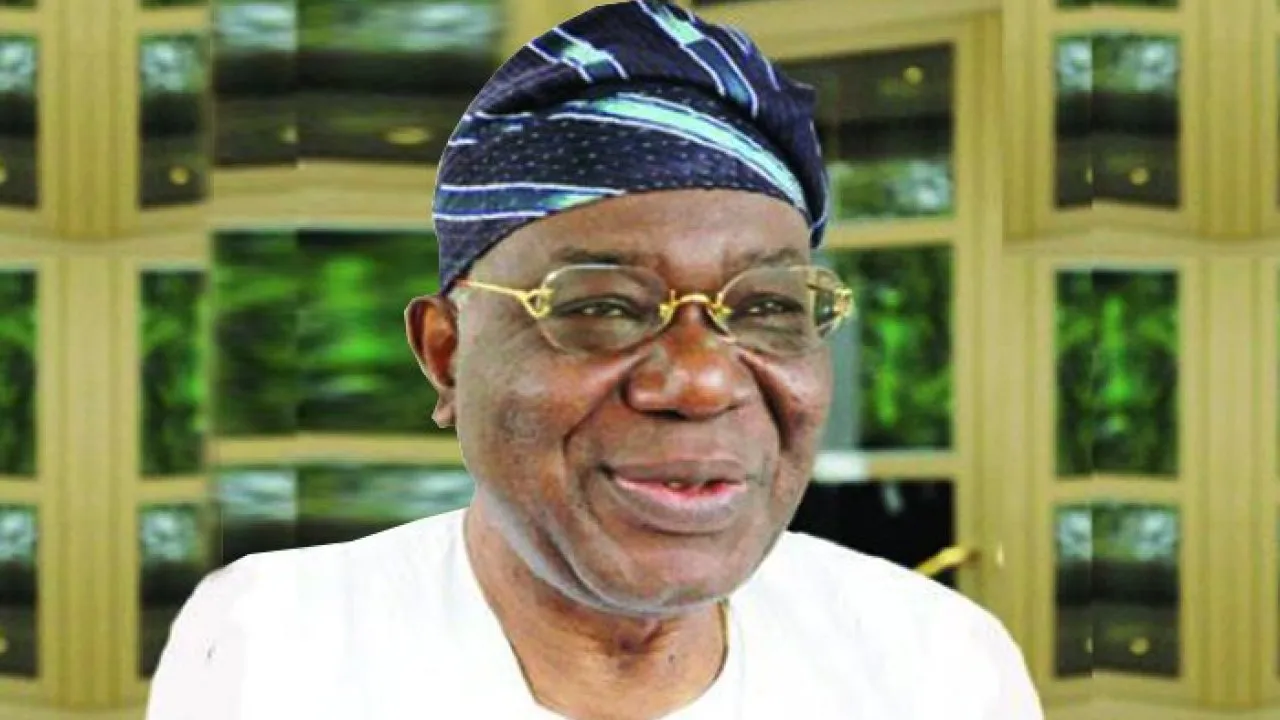
Chief Ernest Adegunle Oladeinde Shonekan served as the interim president of Nigeria in 1993, following the annulment of the presidential election by the military government. Despite his short tenure in office, Shonekan made significant contributions to Nigeria’s political and economic development.
Early Life and Career
Shonekan was born on May 9, 1936, in Lagos, Nigeria. He received his education in Nigeria and the United Kingdom, earning a degree in law from the University of London. He returned to Nigeria and established his law firm in 1964, which grew to become one of the largest law firms in the country.
Shonekan also served on various corporate boards and was involved in several philanthropic activities, including the establishment of a foundation that provided scholarships to underprivileged children.
Interim Presidency
In November 1993, Shonekan was appointed as the interim president of Nigeria by General Ibrahim Babangida, following the annulment of the presidential election won by Moshood Abiola. Shonekan’s appointment was seen as an attempt by Babangida to ease tensions in the country and pave the way for a transition to a democratic government.
During his short tenure in office, Shonekan implemented several reforms aimed at improving the country’s economic and political landscape. He introduced measures to combat corruption and improve public service delivery. He also launched initiatives aimed at boosting foreign investment and expanding Nigeria’s export market.
Challenges and Resignation
Despite his efforts to reform Nigeria’s political and economic landscape, Shonekan faced several challenges during his tenure in office. The country was still reeling from the aftermath of the annulled election, which had led to widespread protests and unrest. There were also tensions within the military government, with some factions opposing Shonekan’s appointment.
In August 1993, General Sani Abacha, a prominent military leader, overthrew Shonekan’s government in a bloodless coup. Shonekan resigned from office and returned to his private business interests.
Legacy
Despite his short tenure in office, Shonekan made significant contributions to Nigeria’s political and economic development. His efforts to combat corruption and improve public service delivery set the stage for subsequent reforms aimed at strengthening Nigeria’s democratic institutions.
Shonekan’s legacy also includes his philanthropic activities. He was a strong advocate for education and established a foundation that provided scholarships to underprivileged children. He also supported various charitable organizations aimed at improving the lives of Nigerians.
Chief Ernest Adegunle Oladeinde Shonekan’s tenure as the interim president of Nigeria in 1993 was marked by significant efforts to reform Nigeria’s political and economic landscape. Despite the challenges he faced during his short tenure in office, he made significant contributions to Nigeria’s development and remains an influential figure in Nigerian history. His legacy as a philanthropist and advocate for education continues to inspire future generations of Nigerians.
Also read: Top 20 Most Affordable Colleges In Canada
11. General Sani Abacha (1993-1998)
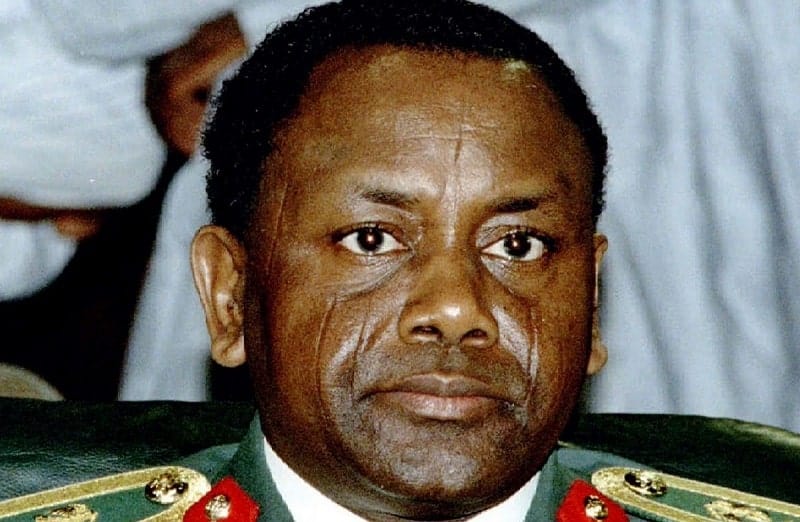
General Sani Abacha was a military dictator who ruled Nigeria between 1993 and 1998. His regime was marked by widespread corruption, human rights abuses, and political repression. Despite his brutal tactics, Abacha is still remembered by some Nigerians for his efforts to modernize the country’s infrastructure and economy.
Early Life and Military Career
Abacha was born in Kano, Nigeria, in 1943. He joined the Nigerian Army in 1963 and rose through the ranks to become a major general. He served in various capacities, including as the director of military intelligence and security, before taking over as the head of state in 1993.
Abacha’s regime was characterized by a heavy-handed approach to governance. He banned all political parties, dissolved the civilian government, and detained prominent politicians, including Moshood Abiola, who had won the presidential election in 1993. He also clamped down on the media, suppressed freedom of speech, and limited civil society organizations’ activities.
Corruption and Human Rights Abuses
Abacha’s regime was marred by allegations of widespread corruption. He and his family members were accused of embezzling billions of dollars from Nigeria’s treasury, and his government was notorious for extortion and bribery. Abacha’s regime was also marked by human rights abuses, including extrajudicial killings, torture, and enforced disappearances. Hundreds of political activists and journalists were arrested and detained without trial.
Despite these abuses, Abacha remained popular with some Nigerians, who saw him as a strong leader capable of restoring order and stability to the country. His government also launched several initiatives aimed at modernizing Nigeria’s infrastructure, including the construction of new highways, bridges, and airports.
Death and Legacy
Abacha died suddenly in June 1998, leaving Nigeria in a state of uncertainty. Although his government was characterized by widespread corruption and human rights abuses, some Nigerians still remember him for his efforts to modernize the country’s infrastructure and economy.
In the years since Abacha’s death, Nigeria has made significant progress towards democracy and good governance. However, corruption and human rights abuses remain a significant challenge. Abacha’s legacy serves as a reminder of the importance of strong institutions and the rule of law in promoting accountability and transparency in governance.
General Sani Abacha’s regime was characterized by widespread corruption, human rights abuses, and political repression. Despite his brutal tactics, Abacha is still remembered by some Nigerians for his efforts to modernize the country’s infrastructure and economy. However, his legacy serves as a cautionary tale about the dangers of authoritarianism and the importance of good governance and the rule of law.
Also read: Top 7 Free Movie Download Sites
12. General Abdulsalami Abubakar (1998-1999)
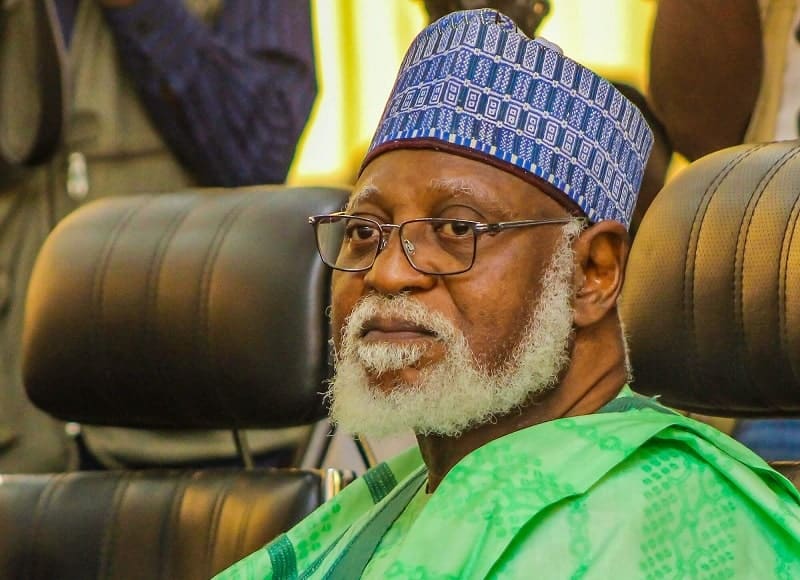
General Abdulsalami Abubakar is a retired Nigerian Army officer who served as the head of state of Nigeria from 1998 to 1999. He became Nigeria’s leader after the sudden death of General Sani Abacha in June 1998 and oversaw the transition to democratic rule after years of military dictatorship.
Early Life and Military Career
Abubakar was born on June 13, 1942, in Minna, Niger State, Nigeria. He joined the Nigerian Army in 1963 and rose through the ranks to become a general. He served in various capacities, including as the commander of the Nigerian Army’s 3rd Armoured Division.
Head of State
Abubakar became Nigeria’s head of state following the sudden death of General Sani Abacha in June 1998. His tenure was marked by a commitment to democratic transition and the rule of law. Abubakar immediately released political prisoners and lifted the ban on political activity. He also established the Independent National Electoral Commission (INEC) to oversee the transition to democratic rule.
Under Abubakar’s leadership, Nigeria held a successful presidential election in 1999. Olusegun Obasanjo, a former military ruler, won the election and became Nigeria’s first civilian president in over a decade. Abubakar handed over power to Obasanjo in a peaceful transition of power, marking a significant milestone in Nigeria’s democratic history.
Legacy
Abubakar’s brief tenure as head of state is widely seen as a critical period in Nigeria’s history. His commitment to democratic transition and the rule of law paved the way for Nigeria’s return to democratic governance after years of military dictatorship. Abubakar’s efforts to promote transparency and accountability in government have also earned him praise from many Nigerians.
After leaving office, Abubakar remained active in Nigerian politics and international affairs. He served as a mediator in several African conflicts and played a key role in negotiating a ceasefire between rebel groups in Sierra Leone. He also chaired the Commonwealth Observer Group during the 2004 elections in South Africa.
In recognition of his contributions to Nigerian and African politics, Abubakar has received numerous awards and honors. He was awarded the Grand Commander of the Order of the Niger (GCON), Nigeria’s second-highest national honor, and the ECOWAS International Gold Medal for his contributions to regional peace and security.
General Abdulsalami Abubakar played a crucial role in Nigeria’s transition to democratic rule in 1999. His commitment to the rule of law and democratic principles paved the way for Nigeria’s return to civilian governance after years of military dictatorship. Abubakar’s legacy as a committed democrat and a promoter of peace and security in Africa has earned him respect and admiration from many Nigerians and the international community.
Also read: DAAD Scholarships 2022/2023 Application Procedure
13. Chief Olusegun Aremu Obasanjo (1999-2007)
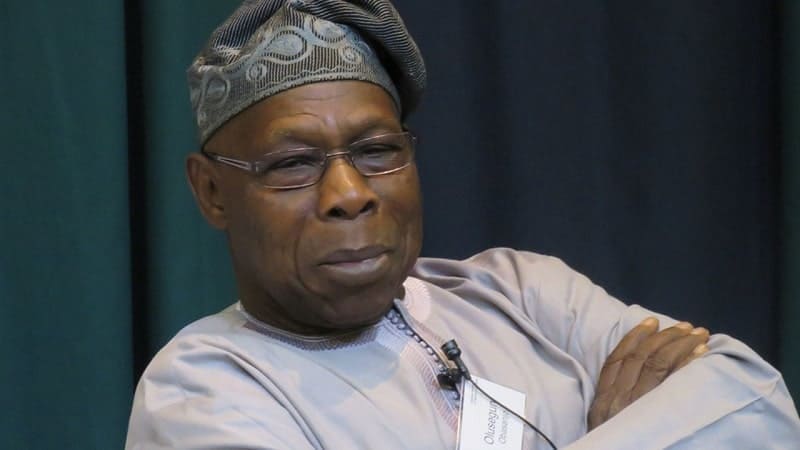
Chief Olusegun Obasanjo is a former Nigerian military ruler and civilian president who served as the head of state of Nigeria from 1999 to 2007. He is widely regarded as one of Nigeria’s most prominent political figures, having played a critical role in shaping the country’s political landscape for over five decades.
Early Life and Military Career
Obasanjo was born on March 5, 1937, in Abeokuta, Ogun State, Nigeria. He joined the Nigerian Army in 1958 and rose through the ranks to become a general. He served in various capacities, including as the commander of the Nigerian Army’s Engineering Corps.
Head of State
Obasanjo first came to power in Nigeria in 1976 after a military coup. He served as the head of state until 1979, when he handed over power to a civilian government. Obasanjo later played a key role in the formation of the Social Democratic Party (SDP) and the Peoples Democratic Party (PDP), two of Nigeria’s most prominent political parties.
Obasanjo became Nigeria’s first civilian president in over a decade after winning the presidential election in 1999. His presidency was marked by significant reforms in various sectors of the Nigerian economy, including education, healthcare, and infrastructure. He also oversaw significant improvements in Nigeria’s foreign relations, particularly with the United States and the United Kingdom.
During his presidency, Obasanjo implemented a series of anticorruption measures, including the creation of the Economic and Financial Crimes Commission (EFCC). The EFCC was tasked with investigating and prosecuting cases of corruption, and its establishment was seen as a significant milestone in Nigeria’s fight against corruption.
Legacy
Obasanjo’s legacy as a political figure in Nigeria is complex and multifaceted. While he is widely credited with implementing significant reforms in various sectors of the Nigerian economy, his tenure was also marked by controversies and criticism.
Obasanjo’s anticorruption measures were seen by many as politically motivated, and his administration was accused of using the EFCC to target political opponents. His handling of several key political crises, including the Niger Delta crisis and the sectarian violence in Jos, has also been criticized.
Despite these controversies, Obasanjo remains one of Nigeria’s most prominent political figures, and his contributions to Nigeria’s political and economic development are widely recognized. In recognition of his contributions, he has received numerous awards and honors, both within Nigeria and internationally.
Since leaving office, Obasanjo has remained active in Nigerian and African politics. He has played a key role in mediating conflicts in various African countries and has been an outspoken critic of the Nigerian government’s handling of various issues, including corruption and insecurity.
Chief Olusegun Obasanjo is one of Nigeria’s most prominent political figures, having played a critical role in shaping the country’s political landscape for over five decades. His presidency from 1999 to 2007 was marked by significant reforms in various sectors of the Nigerian economy, but also by controversies and criticism. Despite these controversies, Obasanjo’s contributions to Nigeria’s political and economic development are widely recognized, and he remains a respected figure in Nigerian and African politics.
Also read: History and video of Oba Oyekan of Lagos coronation in 1965
14. President Umaru Musa Yar’Adua (2007-2010)

Umaru Musa Yar’Adua was the President of Nigeria from 2007 until his death in 2010. He was the first president to be elected after the return of democracy in Nigeria in 1999. His presidency was marked by efforts to address corruption, improve infrastructure, and promote peace and security.
Early Life and Political Career
Yar’Adua was born on August 16, 1951, in Katsina State, Nigeria. He studied at Ahmadu Bello University, Zaria, where he earned a Bachelor’s degree in Education and a Master’s degree in Analytical Chemistry. He later pursued a career in politics and was elected governor of Katsina State in 1999, a position he held until 2007.
Presidency
Yar’Adua was elected as the President of Nigeria in 2007, running under the banner of the People’s Democratic Party (PDP). His presidency was marked by efforts to address corruption, improve infrastructure, and promote peace and security.
One of Yar’Adua’s key initiatives was the creation of the Niger Delta Ministry, which was tasked with addressing the environmental degradation and social issues facing the Niger Delta region. He also implemented the Presidential Amnesty Program, which offered amnesty to militants in the Niger Delta region who had been fighting against the Nigerian government.
Yar’Adua’s presidency was also marked by efforts to improve Nigeria’s infrastructure. He launched the Vision 2020 initiative, which aimed to transform Nigeria into one of the top 20 economies in the world by 2020. The initiative included plans to improve the country’s infrastructure, including the development of new airports, seaports, and railways.
Health Challenges and Death
Yar’Adua’s presidency was cut short by health challenges. In November 2009, he traveled to Saudi Arabia for medical treatment and did not return to Nigeria for several months. During his absence, there were concerns about his health and his ability to carry out his duties as president.
Yar’Adua returned to Nigeria in February 2010, but his health continued to deteriorate. He was eventually admitted to a hospital in Abuja, where he died on May 5, 2010, at the age of 58.
Legacy
Yar’Adua’s presidency was short, but he made significant efforts to address some of Nigeria’s most pressing challenges. He was widely regarded as a humble and principled leader who prioritized the well-being of the Nigerian people. His efforts to address corruption, promote peace and security, and improve infrastructure laid the foundation for future progress in Nigeria.
Yar’Adua’s death sparked a period of political instability in Nigeria, with concerns about the succession process and the political future of the country. However, his legacy as a principled and dedicated leader who worked tirelessly to improve the lives of Nigerians continues to inspire many in the country.
Umaru Musa Yar’Adua was a principled and dedicated leader who made significant efforts to address some of Nigeria’s most pressing challenges during his presidency. His efforts to address corruption, promote peace and security, and improve infrastructure laid the foundation for future progress in Nigeria. Although his presidency was cut short by health challenges, his legacy as a humble and principled leader continues to inspire many in Nigeria and beyond.
Also read: When We Cry, We Manage To See – By Sanyaolu Juwon
15. Goodluck Ebele Azikiwe Jonathan (2010-2015)
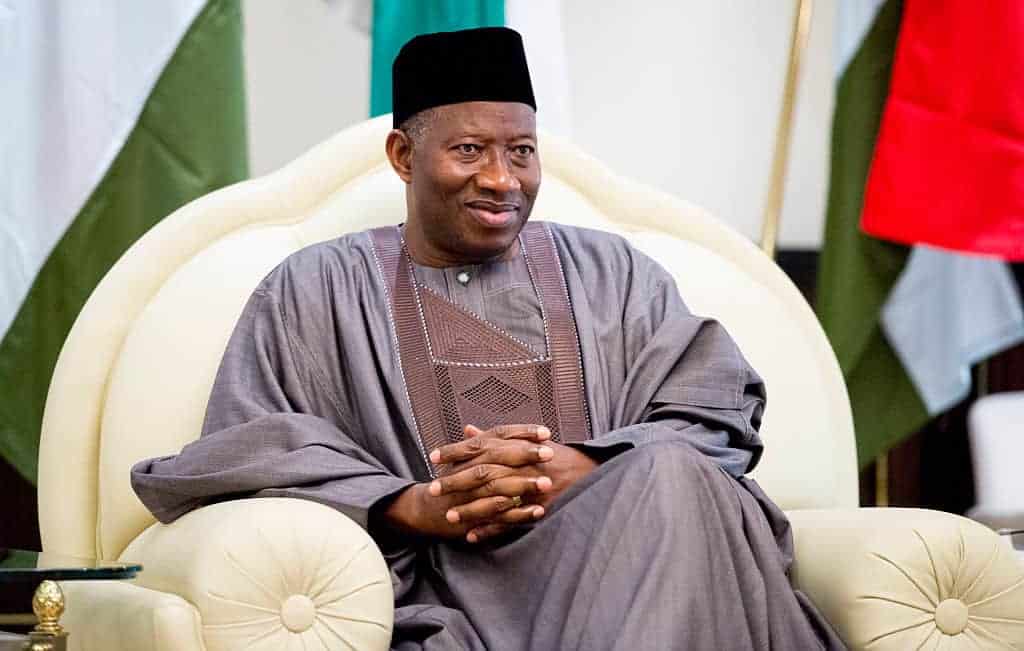
Goodluck Ebele Azikiwe Jonathan was the President of Nigeria from 2010 to 2015. He was born on November 20, 1957, in Otueke, Bayelsa State, Nigeria. He was the first President of Nigeria from the Niger Delta region and was known for his humility and down-to-earth personality.
Jonathan obtained a degree in Zoology from the University of Port Harcourt in 1981 and later pursued a Masters’s degree in Hydrobiology and Fisheries Biology at the same institution. He then proceeded to the University of Sussex in the United Kingdom, where he obtained a Ph.D. in Zoology in 1995.
Jonathan’s political career began in 1999 when he was appointed as the Deputy Governor of Bayelsa State. He later became the Governor of the state in 2005, following the impeachment of his predecessor, Diepreye Alamieyeseigha. In 2007, he was elected as the Vice President of Nigeria on the ticket of the People’s Democratic Party (PDP) under President Umaru Musa Yar’Adua.
Following the death of Yar’Adua in 2010, Jonathan was sworn in as the President of Nigeria on May 6, 2010. During his tenure as President, he implemented several reforms aimed at improving the country’s economy and tackling corruption. He also oversaw the implementation of several infrastructure projects, including the construction of new roads, railways, and power plants.
One of the major achievements of Jonathan’s administration was the successful conduct of the 2011 general elections, which were widely regarded as free and fair. The elections marked the first time in Nigeria’s history that an incumbent president lost an election to an opposition candidate. Jonathan was also credited with implementing several electoral reforms aimed at promoting transparency and fairness in the electoral process.
Jonathan’s administration was, however, criticized for its handling of the Boko Haram insurgency, which began in 2009. The terrorist group carried out a series of attacks on government buildings, churches, and schools, killing thousands of people and displacing millions. Despite several efforts to curb the insurgency, the group continued to carry out attacks throughout Jonathan’s tenure as President.
In 2015, Jonathan ran for re-election under the banner of the PDP but was defeated by Muhammadu Buhari of the All Progressives Congress (APC). The election was widely regarded as free and fair, and Jonathan conceded defeat, a move that was applauded both nationally and internationally.
After leaving office, Jonathan remained active in public life, serving as a mediator in several African countries’ conflicts. He also founded the Goodluck Jonathan Foundation, an organization aimed at promoting peace, democracy, and sustainable development in Africa.
Goodluck Jonathan was Nigeria’s President from 2010 to 2015. During his tenure, he implemented several reforms aimed at improving the country’s economy and tackling corruption. He was also credited with overseeing the successful conduct of the 2011 general elections, which were widely regarded as free and fair. Although his administration was criticized for its handling of the Boko Haram insurgency, Jonathan remains a respected figure in Nigerian politics and an advocate for peace and development in Africa.
Also read: The Shadow Of June 12 By Baba Aye
16. President Muhammadu Buhari (2015-2023)
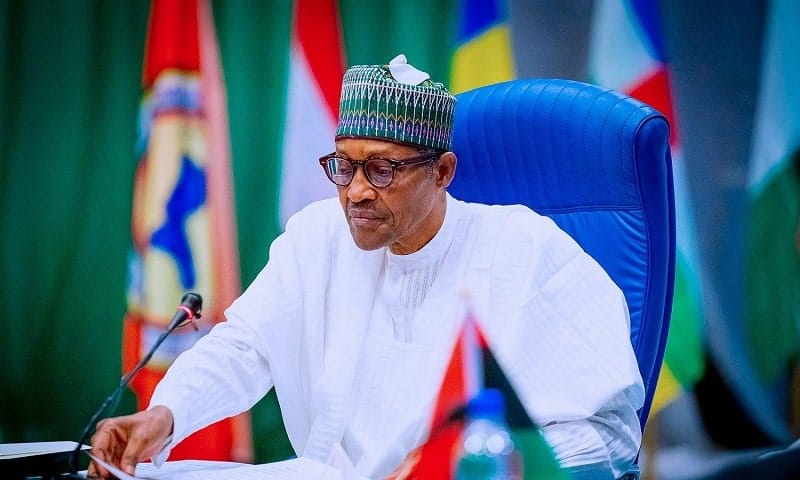
Muhammadu Buhari is a retired Major General in the Nigerian Army who became Nigeria’s President in May 2015. He was re-elected in 2019 and is currently serving his second and final term as President, which ends on May 29, 2023.
Buhari was born on December 17, 1942, in Daura, Katsina State, Nigeria. He attended primary and secondary school in Katsina before joining the Nigerian Army in 1962. He received his military training at the Nigerian Defense Academy (NDA) and in the UK, India, and the US. He rose to the rank of Major General and served as the Military Governor of the North-Eastern State from 1975 to 1978.
Buhari became Nigeria’s military head of state on December 31, 1983, after a military coup that overthrew the democratically elected government of Shehu Shagari. He served as the head of state until August 27, 1985, when he was overthrown in another military coup led by General Ibrahim Babangida.
Buhari’s tenure as military head of state was marked by a crackdown on corruption, indiscipline, and economic mismanagement. He introduced several policies aimed at restoring discipline and orderliness in society, such as the War Against Indiscipline (WAI) and the National Orientation Movement (NOM). He also implemented austerity measures to tackle Nigeria’s economic crisis at the time, including the removal of subsidies on essential goods and services.
Despite his efforts to tackle corruption, Buhari’s regime was also criticized for human rights abuses, including the imprisonment of political opponents and journalists. He also deported illegal immigrants from Nigeria, which was seen as a violation of human rights by some.
After his overthrow in 1985, Buhari went into exile in the UK, where he remained until 1998. He later became involved in politics and ran for the presidency in 2003, 2007, and 2011, but was unsuccessful on all three occasions.
Buhari was elected President in March 2015, defeating incumbent President Goodluck Jonathan in a hotly contested election. His campaign was based on the promise of tackling corruption, improving security, and revitalizing the economy. Since taking office, Buhari has launched several initiatives aimed at fulfilling these promises, including the Treasury Single Account (TSA), the Presidential Initiative on Continuous Audit (PICA), and the Whistleblower Policy.
Buhari has also made efforts to improve Nigeria’s security situation, which has been plagued by terrorism, insurgency, and separatist movements. He has launched military campaigns against Boko Haram terrorists in the north-east, and against bandits and kidnappers in the north-west and north-central regions of Nigeria.
Buhari’s administration has also made efforts to revitalize Nigeria’s economy, which has been struggling since the global drop in oil prices in 2014. He has launched several initiatives aimed at diversifying the economy away from oil, including the Anchor Borrowers’ Program (ABP) and the Presidential Fertilizer Initiative (PFI).
Despite his efforts, Buhari’s administration has been criticized for its handling of the economy, with many Nigerians still struggling to make ends meet due to high unemployment, inflation, and poverty rates.
Muhammadu Buhari is a retired military general who has served as Nigeria’s President since May 2015. His tenure has been marked by efforts to tackle corruption, improve security, and revitalize the economy, but also by criticisms of human rights abuses and economic mismanagement. As his second and final term in office comes to an end in May 2023.
Also read: Peace is Costly, But Far Cheaper Than War
17. Bola Ahmed Tinubu (2023 –
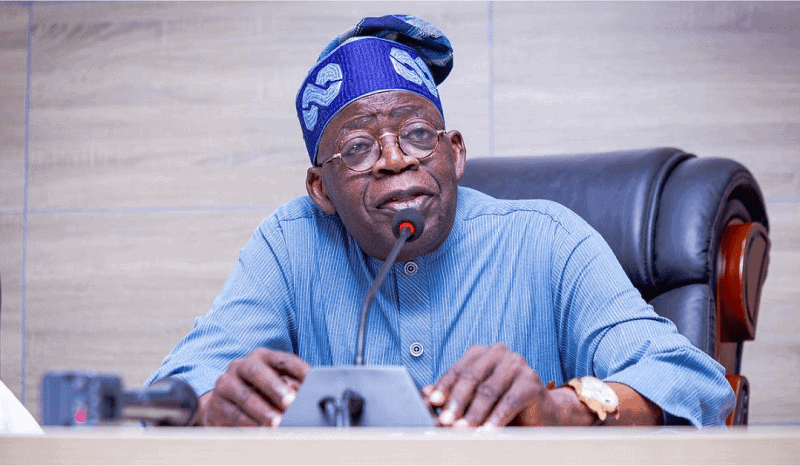
Bola Ahmed Tinubu, popularly known as BAT, is a Nigerian politician who is set to become the next President of Nigeria in May 2023. Tinubu has had an illustrious political career spanning over three decades and has played a crucial role in shaping the political landscape of Nigeria.
Born on March 29, 1952, in Lagos State, Nigeria, Tinubu received his early education at St. John’s Primary School, Aroloya, Lagos, and Children’s Home School in Ibadan. He then proceeded to the United States where he obtained a Bachelor’s degree in Accounting from Chicago State University in 1979 and a Master’s degree in Business Administration (MBA) from the same university in 1983.
Tinubu began his political career in the early 1990s when he was elected to the Senate of Nigeria’s Third Republic, representing the Lagos West constituency. He was subsequently elected as Governor of Lagos State in 1999, serving two consecutive terms from 1999 to 2007. During his tenure as Governor, Tinubu implemented a number of policies and programs that transformed Lagos State into a modern and vibrant city, earning him the nickname, “The Jagaban of Lagos”.
Tinubu is also a founding member of the All Progressives Congress (APC), Nigeria’s ruling political party. He played a key role in the merger of four opposition parties that formed the APC in 2013, which later won the presidential election in 2015, defeating the incumbent President Goodluck Jonathan of the People’s Democratic Party (PDP).
As a seasoned politician and a master strategist, Tinubu is known for his ability to mobilize support and win elections. He has been instrumental in the election of several governors, senators, and members of the House of Representatives across Nigeria, using his political network and influence to help his party win elections.
However, Tinubu’s candidacy for the presidency has been met with mixed reactions. While some believe that he is the right man to lead Nigeria, others have raised concerns about his health and age. Tinubu is 71 years old and has been battling health challenges in recent years. Some Nigerians have also accused him of being a “godfather” and using his political influence to control the political landscape of Lagos State and Nigeria as a whole.
Nevertheless, Tinubu’s political achievements and experience cannot be ignored. On this day, May the 29th, 2023, Bola Ahmed Tinubu was sworn in and became the 16th President of the Federal Republic of Nigeria.
Who is the current President of Nigeria?
The current president of Nigeria is Bola Ahmed Tinubu, popularly known as BAT.
Who is the 16th president of the federal republic of Nigeria?
The 16th president of Nigeria is Bola Ahmed Tinubu, popularly known as BAT.
